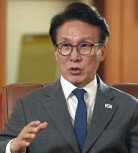Thaksin-style Populism
One-hundred thousand supporters of former Thai Prime Minister Thaksin Shinawatra staged anti-government protests in red shirts yesterday, led by the United Front for Democracy against Dictatorship. They demanded the resignation of incumbent Prime Minister Abhisit Vejjajiva, who opposes Thaksin, and early general elections. Just two years ago, yellow-shirted protesters comprising royalists backing King Bhumibol occupied Bangkoks two airports and demanded resignation of then Prime Minister Samak Sundaravej, a pro-Thaksin figure. The red wave that engulfed Bangkok yesterday bore a striking resemblance to the 2008 protests, the only difference being that the protesters stood politically opposite to the yellow shirts.
The rally was triggered by the Supreme Courts decision to seize 1.4 billion U.S. dollars accumulated by abuse of power from Thaksins personal wealth, which is estimated at 2.3 billion dollars. Though Thaksin has lived in exile in England and China after being deposed in a military coup while on a visit to the U.S. in 2006, he still commands vast wealth as the owner of the Shinawatra Computer and Communications Group, the largest conglomerate in Thailand. He invites a mixed reaction as the CEO-type politician who saved the Thai economy and a symbol of corruption and dictatorship. Though his efforts put the Thai economy back on track and allowed Bangkok to repay IMF debts two years ahead of schedule, he allegedly committed massive tax evasion when selling his mobile telecommunications company.
Four years have passed since Thaksins ouster, but his populist measures are here to stay, giving the Thai people a false sense of hope. As prime minister, he launched a universal health insurance system that enabled anyone to go to the hospital for just one dollar and gave benefits to 2.4 million rural households by deferring repayment of agricultural debts. At the same time, however, he worsened the regional divide by prioritizing the underdeveloped northern area, including his hometown Chiang Mai, and neglecting the south. He also hampered democratic growth by curbing freedom of the press.
Once people get used to certain benefits, it is difficult to wean them off. A person used to driving a large car will be unhappy with a small one, and a baby deprived of his or her lollipop is sure to cry. Farmers and low-income earners support Thaksin because they miss the generous distribution of wealth when he was in power. Korean politicians are also rolling out populist measures such as free school lunches and kindergarten ahead of the June 2 local elections. Anyone welcomes freebies, but someone will have to pay for them in the end.
Editorial Writer Chung Sung-hee (shchung@donga.com)





![[천광암 칼럼]장동혁은 대체 왜 이럴까](https://dimg.donga.com/c/138/175/90/1/wps/NEWS/IMAGE/2026/02/22/133399127.1.jpg)

